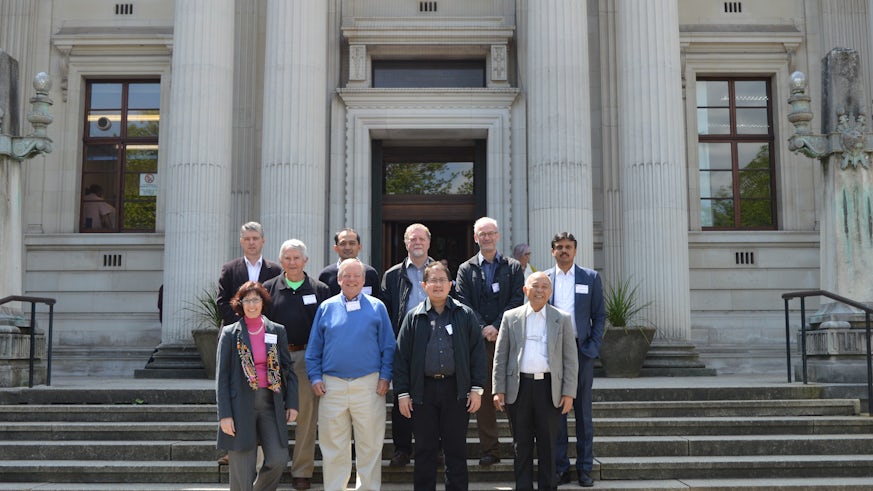Sustainable urban development
2 June 2016

Academics from the universities of Indonesia and Florida have visited the University to explore best-practice in sustainable urban development.
Hosted by the School of Geography and Planning and the Welsh School of Architecture, the visit is part of a two-year prestigious international project which aims to examine how urban development can be fostered through the use of green infrastructure to aid water management.
The work is funded by a grant awarded to a university consortium consisting of Cardiff University, the University of Florida and the University of Indonesia as part of the Global Innovation Initiative —a shared commitment of the UK and US governments to strengthen research collaboration between universities in the UK, US, and emerging economies.
Using case studies from Britain, America and Indonesia, the researchers are comparing technical approaches, legal frameworks and cultural attitudes toward using nature's functionalities in urban management.
One of the projects featured in the Cardiff workshop is Greener Grangetown, an innovative scheme promoted by Cardiff Council, Welsh Water and Natural Resources Wales. It aims to better manage rainwater to make Grangetown a greener, and healthier place to live in while also reducing the cost for water treatment.
The workshop also considered proposals for managing flood risk in Cardiff’s Waterloo Gardens and how these have responded to the unique landscape of that part of the city. Colleagues from the USA also provided insights from their work with developers in Florida to reduce the ecological footprints of new residential developments.
Other work involves using campuses as learning laboratories to develop tools and approaches to improve resource use. This includes campus-wide visualisation of monitored energy and water use data (University of Florida and Cardiff University) which could be a stepping stone for a place-based Information Management tool, and studies of how to enhance water quality through interventions on the University of Indonesia’s large campus estate.
Andrea Frank, of the School of Geography and Planning and Co-Principal Investigator on the project said: “Along with our colleagues from Indonesia and Florida we are investigating how making urban areas greener can transform water and flood management, increase sustainability and reduce the ecological footprint of buildings and cities.
“Together, we are looking at how we can work with nature and develop approaches that are sensitive to local culture, knowledge and expertise to facilitate meaningful policy discussions around reducing resource consumption.”
As well as sharing best practice and shaping policy, the project aims to establish international links, opportunities for research collaboration and student field trips and visits and contribute to capacity building.